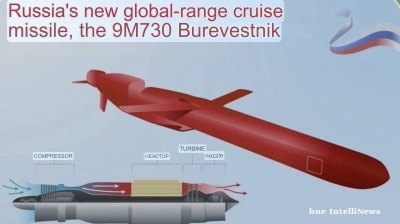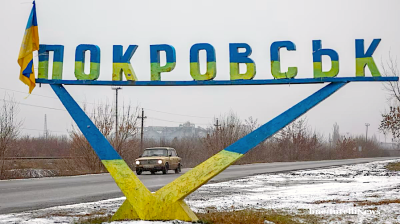Inflation expectations among Russians have been high since the start of this year – more than double the actual rate of inflation – but expectations among the most vulnerable segment of the population continue to rise, ticking up in June to 12.9% from 11.8% a month earlier – double the actual rate of inflation.
Consumer price inflation (CPI) has surged since the state of this year to reach 6% in May, according to the most recent data from the Central Bank of Russia (CBR). That is up from 5.2% at the start of the year and 3% in May 2020.
Economists thought that inflation had peaked in February or March, but CBR Governor Elvira Nabiullina is clearly worried, as inflation continued to climb in May and she said that she was almost certainly going to hike rates again in the July monetary policy meeting – and possibly by a full 100bp. The CBR has already abandoned its easing policy of the last four years and now it has been aggressively hiking rates in March (25bp), April (50bp) and June (50bp).
The earlier hikes have not had much of an affect on inflation and Nabiullina talked about inflation breaking through new barriers, leading her to get even tougher on bringing inflation under control. Prices have been driven up by rising food prices, but also by what she called “demand inflation” as opposed to monetary problems caused by too much cash chasing too few goods.
Broken supply chains have also contributed to the problem. Russia’s manufacturing PMI surprised analysts by falling in May, while it has rocketed to record levels in Central European markets thanks to the release of a year’s worth of pent-up demand. Russian panellists for the PMI reported they were struggling to meet orders and supply chains were making it hard to get inputs, which has also led to a spike in the producer price index of inflation (PPI) to 35% – its highest level ever.
The CBR commissions a monthly survey on inflation expectations from the Public Opinion Foundation (FOM) that divides society into three categories: the median result, a subgroup with savings and a subgroup without savings.
The median inflation expectation for June was 11.9%, well ahead of the actual 6%, whereas the subgroup with savings had an inflation expectation of 9.7%. But expectations were highest among the subgroup with no savings that think inflation will rise to 12.9%. The poorest Russians are the most sensitive to inflation, as a larger share of their monthly outgoing is spent on food – up to 50% by some estimates – so price hikes are more painful.
At the same time, FOM survey’s businesses expected inflation to rise to 27.5% over the next 12 months, up from under 20% the start of this year and in keeping with the expectations reported in the PMI survey.
“In June, both households and businesses kept their inflation expectations elevated. Pursuant to the survey by FOM, households’ inflation expectations for a year ahead rose to the April highs.,” the CBR said in its monthly newsletter on inflation expectations. “The estimates of companies’ short-term price expectations also continued to edge up, as is evident from the findings of the Bank of Russia’s monitoring.”
“Two-year implied inflation for inflation-indexed federal government bonds (OFZ-IN) was up in June, while staying close to the Bank of Russia’s target. Analysts raised their inflation forecasts for 2021 to 4.8–5.0% and kept them almost unchanged for 2022–2023 close to 4%. According to the Bank of Russia’s forecast, given the monetary policy pursued, annual inflation will return to the Bank of Russia’s target close to 4% in 2022 H2 and will stay around this rate further on,” the CBR concluded.
Data

Turkey's central bank remains cautious, delivers 100bp rate cut
Decision comes on eve of next hearing in trial that could dislodge leadership of opposition CHP party.
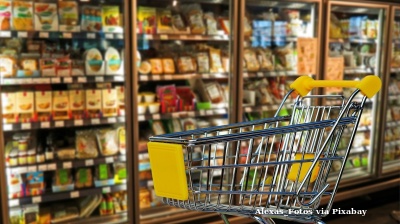
Polish retail sales return to solid growth in September
Polish retail sales grew 6.4% year on year in constant prices in September, picking up from a 3.1% y/y rise in August, the statistics office GUS said.
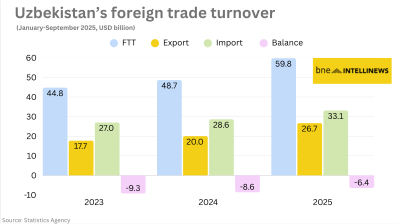
Uzbekistan’s nine-month foreign trade nears $60bn
Export growth of 33% and import expansion of 16% y/y produce $6.4bn deficit.
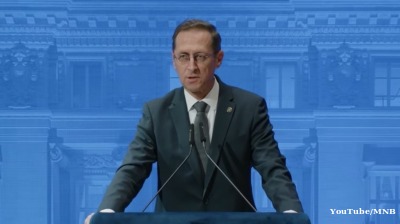
Hungary’s central bank leaves rates unchanged
National Bank of Hungary expects inflation to fall back into the tolerance band by early 2026, with the 3% target sustainably achievable in early 2027 under the current strict policy settings.


